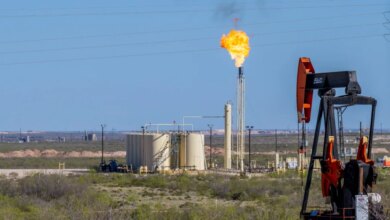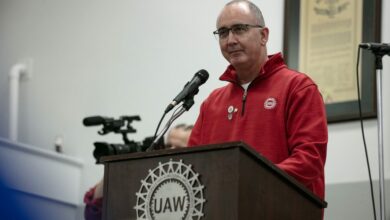Reddit ex-CEO: Why I left Big Tech for climate change


Ten years ago, I left Big Tech. I’d spent over a decade in Silicon Valley: first at PayPal, then as a director of engineering at Facebook, and finally serving as CEO of Reddit. Working in Big Tech can be exciting and exhilarating—building products seen and used by millions, even billions of people. The challenges you are forced to grapple with often dwarf in scale the problems encountered in most other industries, and, as a result, veterans of the tech industry come away with unique skills and perspectives on big problems.
There is one arena, though, where the problems loom larger than even those contemplated by hyperscale tech, and that’s planetary climate change. When it comes to climate, the variables are still too numerous for even our best computers to simulate. The number of stakeholders is literally everyone on the planet—the largest possible TAM, or total addressable market. What this really means is that worldwide climate action is ultimately undertaken by cultures and communities everywhere, and the way people relate to it is myriad and diverse. Even the simplest-seeming solutions hide surprising complexity under the covers—it is not just scientific, but also social.
When I began my first, naive attempts to restore a dryland forest on a parcel of land I’d acquired, I began the journey of learning far more about the land, air, biology, energy, and earth systems than I thought possible. While it was exciting to immerse myself in multiple new fields of study, one key discipline from my days in Big Tech has proven to be uniquely valuable, and a source of consistent and useful insight. That discipline is scalability.
Ready to scale
My years in tech had taught me to think in terms of scale. A social media site or a payment platform can’t succeed if it breaks down when 10,000 or even 10 million new people decide to sign up. After calculating the carbon impact of restoring a single forest, I got curious about the impact of restoring every forest. I realized that, at scale, global reforestation had the potential for a significant impact on climate change—to reduce our atmospheric carbon by 30%. Soon, I found that scientists halfway around the world had completed research that seems to point to the same conclusion.
That number becomes even more significant when you understand that carbon removal technologies like direct-air carbon capture are nowhere near ready to scale. They’re years or even decades from that point. New technologies nearly always suffer from bugs and reliability issues. And we don’t have time to wait. On the other hand, a new sapling begins removing carbon from the air the first day it’s planted.
I love new tech as much as anyone else. But here is the key lesson, the most counterintuitive one, hard-won through sweat and tears working in a hyperscale tech company: To solve a hyperscale problem, you always avoid new tech. It’s best to use reliable, older-generation equipment that will require minimal troubleshooting and bring the fewest surprises.
That’s why trees are a great solution for sequestering carbon. We know the benefits and the risks, and they’re accessible to everyone, not just the wealthiest nations. Everyone can participate, and while there are plenty of unknowns and there will be many missteps, all of those problems can be more easily researched and solved if we’re starting from a basic idea that’s easy to understand: a tree.
Forestry accelerator
Planting lots of trees sounds simple, but mass reforestation is a wholly different type of project—one that calls for a high level of expertise and resources. Financing is a major bottleneck. Seeds for dozens of different species must be collected and prepared. Water must be made available. Teams must be trained and ready to overcome unique challenges. And because forests are highly interdependent systems, we have to solve them all holistically.
In 2022, my company Terraformation launched the Seed to Carbon Forest Accelerator, a program modeled on startup accelerators like Y Combinator. It provides wraparound support for early-stage forestry teams and helps investors access high-quality carbon credits. In over a year, we’ve launched three cohorts of forestry teams aiming to reforest land in some of the world’s most biodiverse and climate-critical areas—and we’re launching a fourth cohort soon. We’ve taken reforestation projects from conception to carbon-project registration in roughly 12 to 18 months, among the fastest of any such projects. And there are more to come.
Climate change is the greatest challenge of our time. Every year the need to take meaningful action becomes more and more urgent. It is our intention to do work that our grandchildren and their children will be proud of. That is why, at Terraformation, one of our company values serves as a daily reminder of why we do this work: “We are ancestors.”
Yishan Wong is the founder and CEO of Terraformation, a global reforestation company.
More must-read commentary published by Fortune:
The opinions expressed in Fortune.com commentary pieces are solely the views of their authors and do not necessarily reflect the opinions and beliefs of Fortune.
Source link




